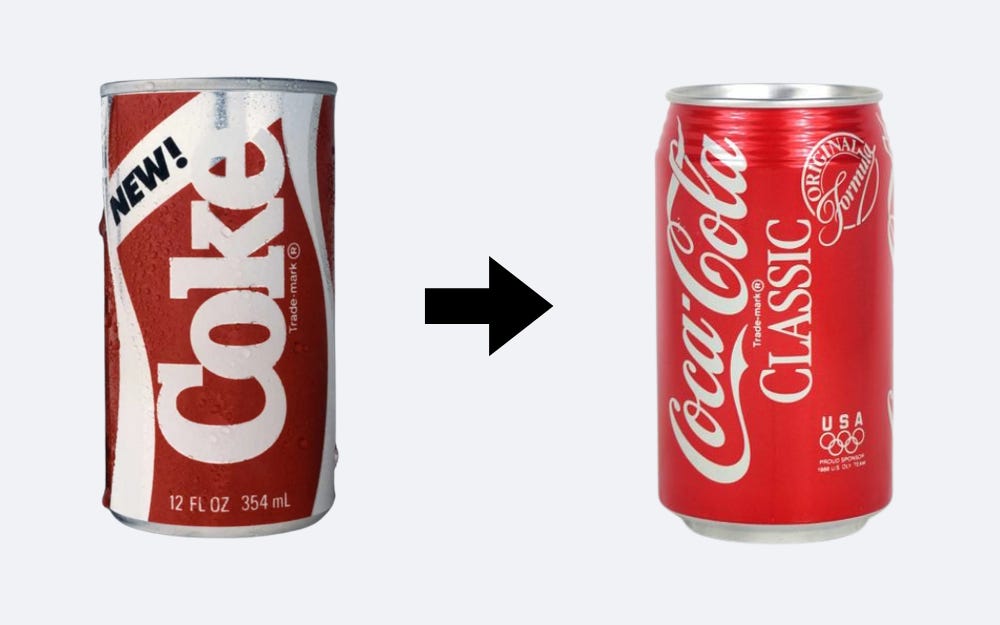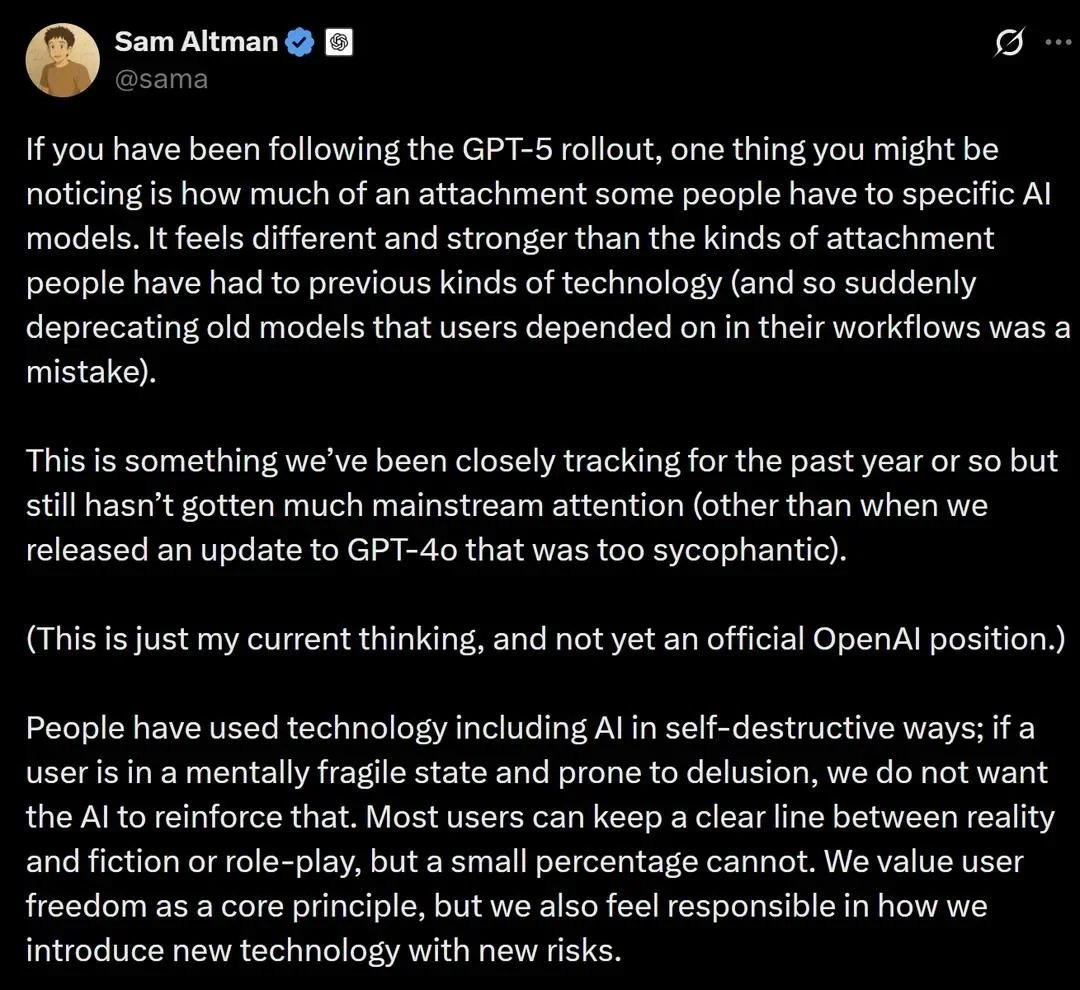Hot on the heels of the success of Diet Coke, in 1984, Coca-Cola did something unprecedented. Faced with continual losses in the Pepsi Challenge, they changed the recipe for Coke and launched New Coke, a taste more like Diet Coke. Would people have liked it? It is hard to say because there was an immediate backlash and Coca-Cola was forced to backtrack, re-launching the original as Coke Classic.
Last week was deja vu all over again with respect to the launch of GPT-5. OpenAI had launched new models in the past to a very welcome reception, but this time it was different. There was a loud chorus of people wanting GPT-4o back. It was unclear whether this was its personality or whether it was different in output. Suffice it to say, the backlash took OpenAI by surprise, and they were forced to react:
It may be that the old models might come back, but right now they are not there:
What’s going on here? I think Ethan Mollick nailed it:
So GPT-5 is likely the superior model for the vast majority of uses. The problem is that those uses haven’t really happened yet. Instead, with previous models, there are people (really still lead users) who have spent considerable time getting to know their new AI co-worker and all of their foibles. GPT-5 was such a significant change that the working relationship for many was completely disrupted. That means they have to invest in it again. Like the taste of Coke, the utility comes from experience, but people want to change on their own terms.
Some companies have made significant changes. Apple generally does this (and is about to do so again in September) and, after a bit of disruption, people forget there was a change issue. This is because fundamentally, the investments people make are low, not much more than a charging cable in cost.
But AI is more like Coke. People are making very large investments and have been very happy with the outcomes. The disruption is immediate and frustrating. Moreover, the path out of it is murky because it was time, iteration, experience and experimentation that allowed workflows to be changed and AI to be integrated in them. These are real costs and not only might people not want to make them, precisely those whose productivity is so much higher working than re-learning due to AI, but they also cause them to pause about making them again because every signal coming from AI companies is that more change is afoot.
If the plan is to push humans out of the loop, then this might not matter. But if the real benefits are to integrate AI workers into people’s lives and occupations, the speed of change and the resulting model instability is going to be a problem. AI is already a variable beast without adding more variation to the mix.
Coke ultimately knew what its real thing was and so survived the backlash. (And it remembers it to this day). AI model providers have a much more problematic issue, as we have to admit that we do not yet know what the real thing is.
For my part, I have found GPT-5 an overall great change, but there are bits and pieces where I wonder if I have lost something. The problem is that I have no way to check it out.





